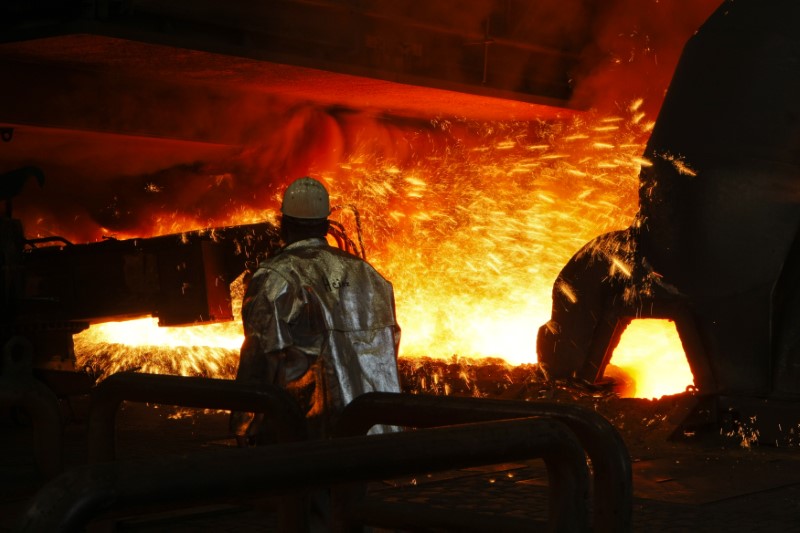By Maytaal Angel
LONDON (Reuters) - A revival in European steel is at risk from U.S. President Donald Trump's move to impose tariffs on imports, Eurofer said as it raised its 2018 forecast for apparent steel consumption.
The consumption figure, which excludes the impact of inventory changes, is set to grow by 2.3 percent, above a previous forecast of 1.9 percent, the European steel association said on Tuesday.
"The latest data shows that the European steel industry has finally struggled its way back towards a firmer footing", Axel Eggert, director general of Eurofer, said, adding that this was being put at risk by a 25 percent U.S. tariff on steel imports.
Trump imposed the tariff on steel imports and a 10 percent tariff on aluminium on March 23, but granted temporary exemptions to Canada, Mexico, Brazil, the European Union, Australia and Argentina.
He has since postponed tariffs on Canada, the EU and Mexico until June 1, but a source familiar with the decision said there would be no further extensions beyond that date.
The EU has said it will set duties on 2.8 billion euros (2.5 billion pounds) of U.S. exports, including peanut butter and denim jeans, if its metals exports to the United States, worth 6.4 billion euros, are subject to tariffs.
It has also launched an investigation into whether to impose safeguard measures that would limit EU steel imports, which it fears might surge as steel previously headed for the U.S. gets diverted.
Eurofer said preliminary data suggests EU steel imports grew 8 percent in the first quarter, after falling 1.8 percent last year thanks to EU trade defence measures to counter dumping and unfair subsidies.
Steel imports from India rose 96 in the first quarter while those from Turkey grew by 64 percent, Eurofer said, countering a drop in imports from China, Russia, Ukraine and Brazil, whose steel is largely subject to EU anti-dumping duties.

EU apparent steel consumption grew 1.6 percent in the first quarter, Eurofer said. The group sees apparent steel consumption growth of 1.4 percent next year versus 2.3 percent this year.